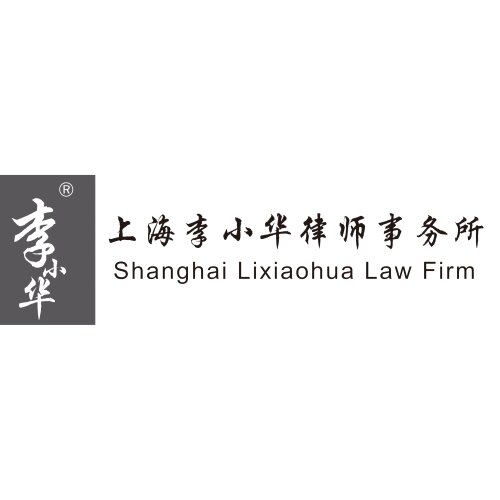Best International Trade Law Lawyers in China
Share your needs with us, get contacted by law firms.
Free. Takes 2 min.
Or refine your search by selecting a city:
List of the best lawyers in China
About International Trade Law in China
International Trade Law in China governs the exchange of goods and services across international borders, ensuring that trade practices are carried out fairly and efficiently. China, being one of the world's largest trading nations, plays a critical role in global trade dynamics. The legal framework encompasses regulations on tariffs, trade remedies, import/export controls, as well as adherence to international treaties and agreements. Understanding these complex regulations is crucial for businesses engaged in trading activities with or within China.
Why You May Need a Lawyer
There are numerous situations where individuals and businesses might seek legal assistance related to International Trade Law in China:
1. Navigating compliance with China's import/export regulations.
2. Drafting and negotiating international trade agreements.
3. Resolving trade disputes and seeking remedies under Chinese or international law.
4. Ensuring adherence to intellectual property rights in Chinese markets.
5. Advice on foreign investment laws and regulations affecting international trade.
6. Representation in antidumping, countervailing, or safeguard investigations.
Having a knowledgeable lawyer can assist in effectively managing these complexities and reducing the risk of legal infractions.
Local Laws Overview
China's International Trade Law framework is composed of various regulations and policies geared towards affecting trade flows and ensuring compliance:
1. Customs Law: Governs the importation and exportation of goods, requiring proper declarations and adherence to tariff schedules.
2. Foreign Trade Law: Addresses the overall conduct of foreign trade activities including licensing and market access requirements.
3. Anti-Monopoly Law: Ensures fair competition by preventing monopolistic practices that may impede market access.
4. Intellectual Property Laws: Critical for securing IP rights and handling infringements, especially important for technology and branded goods.
5. Product Standards and Safety Regulations: These include labeling, quality, and safety standards that products must meet to enter the Chinese market.
6. Trade Remedy Measures: Such as antidumping and anti-subsidy rules protecting local industries from unfair foreign competition.
Frequently Asked Questions
What are the key regulations for exporting goods to China?
Exporters must comply with Chinese standards, customs regulations, labeling requirements, and may need to obtain pre-approvals or certifications.
How does China deal with trade disputes?
Trade disputes can be resolved through mediation, arbitration, or litigation per Chinese law, often involving the Chinese Ministry of Commerce or international bodies like WTO.
What are China's import tariff rates?
Import tariff rates in China depend on the Harmonized System (HS) code of the product and may vary based on trade agreements or temporary trade measures.
How do I protect my intellectual property rights in China?
Registering patents, trademarks, and copyrights within China, conducting due diligence, and seeking legal enforcement in case of infringements are key steps.
Are there any restrictions on foreign investments in China?
China has a 'negative list' policy outlining sectors where foreign investment is restricted or prohibited, while others may require approvals or joint ventures.
What documentation is needed for customs clearance?
Typically, a bill of lading, commercial invoice, packing list, import/export license, and relevant certificates or permits are required for customs clearance.
How do Chinese trade laws affect e-commerce transactions?
E-commerce players must adhere to specific e-commerce laws, consumer protection legislation, and taxation policies applicable to cross-border transactions.
Can foreign companies participate in public procurement in China?
Foreign companies can participate in public procurement, but tenders may have localization requirements, and familiarity with procurement procedures is essential.
What are the penalties for violating trade laws in China?
Penalties may range from fines, confiscation of goods, suspension of trading licenses, to more severe legal actions, depending on the nature and severity of the violation.
Do trade agreements impact my business dealings in China?
Yes, trade agreements can provide benefits like reduced tariffs, improved market access, and enhanced legal protections, impacting operational costs and compliance requirements.
Additional Resources
1. Ministry of Commerce of the People's Republic of China - Offers important regulatory information and updates.
2. The China International Economic and Trade Arbitration Commission (CIETAC) - A major arbitration body for resolving trade disputes.
3. The World Trade Organization (WTO) - Provides resources on global trade regulations affecting China.
4. China Council for the Promotion of International Trade (CCPIT) - Facilitates trade and investment agreements with foreign businesses.
5. Local chambers of commerce in China - Helpful for networking and understanding local trade contexts.
Next Steps
If you require legal assistance in International Trade Law related matters, consider the following steps:
1. Assess your specific needs and gather all relevant documentation pertaining to your trade matters.
2. Research and consult with reputable law firms or legal professionals specializing in International Trade Law in China.
3. Schedule consultations with several lawyers to discuss your case, their expertise, and potential strategies.
4. Choose a lawyer based on experience, reputation, and your comfort level, ensuring clear communication on fees and timeline.
5. Stay informed on changing regulations that may impact your trade activities to facilitate effective legal advice and strategy implementation.
Lawzana helps you find the best lawyers and law firms in China through a curated and pre-screened list of qualified legal professionals. Our platform offers rankings and detailed profiles of attorneys and law firms, allowing you to compare based on practice areas, including International Trade Law, experience, and client feedback.
Each profile includes a description of the firm's areas of practice, client reviews, team members and partners, year of establishment, spoken languages, office locations, contact information, social media presence, and any published articles or resources. Most firms on our platform speak English and are experienced in both local and international legal matters.
Get a quote from top-rated law firms in China — quickly, securely, and without unnecessary hassle.
Disclaimer:
The information provided on this page is for general informational purposes only and does not constitute legal advice. While we strive to ensure the accuracy and relevance of the content, legal information may change over time, and interpretations of the law can vary. You should always consult with a qualified legal professional for advice specific to your situation.
We disclaim all liability for actions taken or not taken based on the content of this page. If you believe any information is incorrect or outdated, please contact us, and we will review and update it where appropriate.
Browse international trade law law firms by city in China
Refine your search by selecting a city.











